- Home
- Heather Graham
Night of the Blackbird Page 12
Night of the Blackbird Read online
Page 12
“I…I don’t mean to be.”
Granny Jon was silent for a minute, then she said, “I am very old, you know.”
“Age is relative,” Moira said.
“Yes, but there is a lot I remember, you see. I was a child in Dublin at the time of the Easter Rebellion, you know. I saw the streets in flames. I had friends—little children—who were killed in the crossfire.”
“I’m so sorry,” Moira said. “You’ve never talked about it.”
Granny Jon shrugged. “Dublin is a wonderful city now. And the Irish are a wonderful people. I’m just saying this because…well, sometimes when people are born into violence, scars remain. Sometimes the old-timers can’t help talking about what was—and about what they hope for in the future.”
“Granny Jon, I just can’t believe that bombs and bullets—”
“Bombs and bullets are wrong. The murder of innocents is wrong. I’ll never say otherwise. I just want you to understand how people feel at times.”
“I do understand. Honestly, Granny Jon, I know the history of Ireland. It was impossible to grow up with you and Mum and Dad and not know it.”
“Your father wanted to come here, you know. To America. Not that he didn’t realize that every country had its injustices to fight. But we had family in the North.”
“I understand.”
“I’m not sure if you really do. In the last few years, there have been giant steps taken toward real peace, the ceasefire in 1997, the Good Friday Agreement in 1998. President Clinton spent time in Northern Ireland, working things out. But you know as well as I do that there remain those who wish to die and don’t mind sacrificing the lives of others for their beliefs. You’ve just got to remember, Moira, that we are Irish and proud of it, and that you’re Irish, too.”
Moira stood, then kneeled down by her grandmother, putting her arms around her. “I’m so sorry if I led you to believe that I was ever anything but completely proud of all of you,” she said softly.
Granny Jon pulled away, smiling at her, smoothing her hair. “I don’t say there aren’t problems in Ireland. But you know, though it may well be the greatest country in the world, there are problems in America, as well.”
“I always knew you were wonderful,” Moira told her, “but I don’t think I ever knew before just how incredibly savvy you were.”
Granny Jon grinned. “Sometimes…well, there are times when I’m afraid, too. But get on down to the pub now, girl. Go sing ‘Danny Boy’ for your dad.”
“We sang it last night.”
“Sing it again—it makes him happy.”
“You don’t need anything…”
“If I did, I’d ask.”
Moira smiled and started out of the room.
“Moira?”
She paused in the doorway. “Yes?”
“Remember, the country we’re from is beautiful. The Irish in years past kept the art of books alive. In the Dark Ages, Irish monks worked endlessly to keep the written word going. Some of the finest craftsmen in the world were Irish. There’s a spirit there, as well, in the wind, the sea, the crags and cairns. Legends and stories, art and drama. Remember it all, Moira.”
“I do, Granny, I do. Honestly.”
Granny Jon nodded. “Go on with you, then. Go have fun being with your family. The taping you did today was lovely.”
“Thanks. Hey, would you let me tape you telling the kids a story tomorrow?”
“If you’re sure you want an old woman on your show.”
“I want an incredibly bright and wonderful woman on my show.”
Granny Jon smiled her pleasure. “Go on now.”
“You sure? You’re not watching the television or reading or anything. I hate to leave you alone.”
“I’m thinking, girl. Reflecting. At my age, it’s an interesting occupation.”
Moira nodded and left her, ready to head down to the pub.
Dan saw the man in the navy sweater at the corner table the minute he came down and stepped behind the bar with Michael McLean.
McLean was evidently wary of him, but the guy was doing everything he could to fit in. He was obviously very much in love with Moira and willing to prove it. Not that he was behaving like a sycophant in any way. He was steady, determined and willing, unafraid to speak his mind and capable of doing so with diplomacy. Actually, Dan reflected, under other circumstances, he might have liked the guy.
They’d come together behind the bar to allow Eamon Kelly time to sit with his old cronies for a while, and solve the future of the free world. Working the bar was easy enough—most orders were for drafts. The pub was busy, but there was still time to watch the floor and talk to the regulars. The band was playing, and the television was on with the sound turned down. It seemed a typical enough night. Something going on everywhere.
The guy in the corner was alone. At a two-seater table, he nursed a single beer. He’d been at it for a while. A nondescript fellow, brown hair cut short, Ivy League look. He might have been an accountant, a banker, a lawyer or a businessman of any variety. White-collar type, though, beyond a doubt.
“They’re at it again,” Michael said, then added a quick, “sorry.”
Dan arched a brow at him.
Michael McLean shrugged. “I forgot how important it is to all of you—every event in the history of Ireland.”
Dan nodded, tuning in to the old men’s conversation. It was a familiar one.
“Well, I ask you again,” Seamus said. “Are you an American?”
“Don’t be daft, man,” Eamon Kelly replied, shaking his head. “Yes, I’m an American. I applied for my citizenship the day I’d been in the country long enough. I’d had a son by then, and Moira was on her way. Katy and I had talked about it long and hard. We’d decided that we were bringing the children up in Boston, and that was that.”
“But you’re still an Irishman.”
Eamon groaned. “I was born an Irishman.”
“So what if America went to war with Ireland?” Seamus demanded.
“America will never go to war with Ireland.”
“But what if it did?”
“Seamus, I’m telling you again, you’re daft, man.”
“You’re missing the point.”
“I’m not missing the point. You’re saying that an Irishman is always an Irishman, above and beyond anything else. The American Irish and the Northern Irish both.”
“But you do think the island should be united.”
“You think the island should be united.”
“Aye, but I don’t know how it’s to come about.”
“That’s why a man like Jacob Brolin is so important. He knows The Troubles backward and forward. He knows that the religious divide is an economic divide, that laws in the past have created half the problems, that the healing has to come from the people. And if you can unite the people, you can eventually unite Ireland.”
“What about those who like their financial ties with England?”
“Why are we arguing about this, Seamus? We both feel the same way,” Eamon said, irritated. The two men looked as if they were about to exchange blows. Dan knew that they often looked this way.
Seamus shook his head, looking sorrowful. “There’s trouble brewing.”
“In my pub?” Eamon said scornfully.
Seamus suddenly lowered his voice. “Do you remember that soldier in seventy-one?”
“I’m a Dubliner, Seamus.”
“But you remember, because you knew him. Family ties, Eamon, and they run deep. The poor kid was a twenty-year-old British soldier. The IRA kidnapped him after a street brawl in Belfast. He lived in Paddy McNally’s house for two weeks, and everyone who met the fellow liked the chap. But the British refused to free a few of the IRA men who had been picked up, so they took that poor kid out and shot him dead, despite the fact that they had all but adopted the lad.”
“And the world condemned the IRA faction that did the deed as terrorists,” Eamon said angrily. “S
eamus, what are you going on about? I’m telling you, I can’t solve the problem and I know it. I’m an American, running a pub in Boston. Praying for peace everywhere, like the whole damned rest of the world. The governments of North and South both know that the time of war and revolution is over, that in the small world we live in now, negotiation is the way to go. Jesus, Seamus, how you’re going on. We’ve both seen it. Kids taught to throw rocks from the time they’re walking, rocks that turn into bullets when they’re old enough to tote a gun. We’ve learned to fight with words—”
“Oh, aye. And every time there’s an agreement signed, there’s sure to be a bomb going off somewhere.”
“Excuse me, Seamus, but I was over in Belfast not more than a year and a half ago, and I’m telling you, the Northern Irish want tourist dollars the same as the rest of the world. They’re on the road to change.”
“Most of the Northern Irish,” Seamus muttered.
“Seamus, just what are you trying to say to me?”
Seamus suddenly looked straight at Dan. “I’m saying that the North still has terrorists.”
“And what would you have me do?”
Seamus shook his head suddenly, looking into his beer. “Whispering,” he muttered. “Gaelic. I’ve been hearing it, here in the pub. There’s something going on; I’ve yet to put my finger on it, but I’ve heard…Gaelic.”
“I can still speak the old language myself, Seamus, so what in the Lord’s name does that have to do with anything?”
Seamus looked up and caught Dan watching at him.
He lifted his beer. “It’s a fine old language.”
Colleen was at the service end of the bar with a tray, ready to place an order. “Hey, one of you guys want to make a blackbird?”
“I thought Blackbird was the band?” Michael said, setting a Guinness in front of a balding man near the end of the bar.
“The blackbird is an old house specialty,” Seamus told him. “Coffee, two parts Irish cream and one part Irish whiskey. A dollop of whipped cream on top. Haven’t had an order for one in a long time.”
“I know the drink,” Dan said. “I’ll get it.”
“Who asked for it?”
“Some guy over there,” Colleen said, pointing vaguely to the back of the room.
“I’ll make it and take it to him,” Dan said.
“Just make it for me, I’ll take it to him,” Colleen said, rolling her eyes slightly. “We don’t want Dad thinking he’s got to get behind the bar again himself, not when he and Seamus are having such a good time.”
Dan made the drink. Though the bar became more crowded and people were standing behind the stools calling out orders, he watched as Colleen delivered it.
As he had suspected, it went to the man in the navy sweater at the table in the corner.
The pub was a zoo. Well, it was Saturday night preceding the week when Saint Patrick’s Day would fall. As she entered the bar area, Moira was glad that she had come down. Her father was a good businessman; he had planned for the crowd. But it was very busy.
She was surprised to see Michael behind the bar with Danny. He looked a little frazzled, but he was gamely pouring beer and mixing drinks. She slipped up behind him.
“You all right?”
“Fine, I think. Working hard at it, anyway.” He dropped his voice, whispering, “Trying to earn points, you know. Think I can make it into the family circle?”
She laughed, delighted that he was trying so hard. “You have the right background. Good last name. I think you’ll make it just fine. You’re doing an exceptional job. But I had thought you might want to slip away tonight.”
“Moira, if you’d suggested that earlier, we might have had a chance.”
He was watching her with a rueful grin, and she knew he was right. She could never leave when the place was roaring along full tilt, as it was now, and every hand was needed. She slipped her arms around him. “You’re incredible.”
“Don’t press so tightly. I’m suffering the agony of the damned as it is.”
“I can slip out later, you know.” She sighed. “Much later, of course.”
“Now that’s an enticing possibility.”
“You know I mean it, Michael. You’re really wonderful.”
“In more ways than one, if you recall.”
“Vaguely,” she teased. “I’d love to have my memory refreshed.”
“We’ll see,” Michael said, his lips curved in a smile. “Will you really sneak out of Dad’s house?”
“Hey!” Chrissie called. “Is anybody back there actually working?”
“Sorry, Chrissie,” Moira said quickly. She strode to the service area.
“I need a Gibson, extra onions, two Guinness drafts, a Murphy’s, two white wines and a burgundy.”
“Got it,” Moira said.
“Know what? You’re better at this than I am, but I can write down orders,” Michael said. He cast a glance along the bar. “I’ll leave you with good old Danny boy there and work the floor with the others.”
She nodded. It was true; she could make the drinks a lot faster than he could.
Moira took over the service area and was surprised when she heard Danny whispering in her ear a few minutes later.
“He’s racking up some points tonight, eh?”
She turned halfway around while still keeping her attention on the drinks she was pouring.
“What are you talking about?”
“Tall, dark and handsome. Old beady eyes. He’s worming his way in.”
“He’s helping out. And even if he is doing it all to make my father like him, I appreciate the effort.”
“Beady eyes, Moira.”
“Danny, I hear someone calling you.”
“Am I too close? Is that it? Is the memory of what’s really good shooting through your bloodstream? Is your pulse pounding? Let me answer for you. You’re feeling the heat. You’re watching my hands on the taps and remembering just how good they felt on your flesh.”
“Oh, yeah, heat, Danny. I’m under a friggin’ blowtorch.” She leaned closer to him. “Know what I’m really thinking?”
“That I’m to die for?”
“I’m thinking you’re delusional,” she told him.
He grinned. “Maybe, love. Maybe I’m the one with the memories, recalling just how good it feels to have my hands on you. We were good together, eh?”
“That was then, this is now,” she said simply. “Chrissie!” she shouted over the heads of the customers packing the bar. “Was that martini up or on the rocks?”
“Rocks!” Chrissie called.
“I do love you, Moira Kelly,” Danny said softly.
His whisper seemed to touch the back of her neck. Like the stroke of a finger. Suddenly she was filled with memories. She found herself staring at his hands on the taps. A hot flush rushed over her, and she found herself thinking she was a terrible person. But it was true. He was good in bed.
So was Michael. She had been in love with Danny once. Maybe half her lifetime. She’d waited for years for something else. Something real. Michael. She wasn’t a fool. She was mature enough to have learned that what felt good wasn’t always right.
And still…
Danny’s eyes. The curl of his lips, his humor. The way he could laugh with her or at himself. The way he could slip an arm around her, hold her, give warmth and a sense of understanding at just the right moment. And then suddenly turn sensual, purely sexual in a way that left her gasping….
“Seamus needs another draft,” she said, to distract herself from her dangerous thoughts.
“Seamus has had too many.”
“Patrick is back. I see him over there. He’ll walk old Seamus home—he’s just a few blocks away. Give him another draft. He’s having fun with Dad.”
“I think you should have a beer.”
“Maybe I will.”
“Maybe I can get you to have enough of them.”
“Enough of them for what? For you to get me
back in bed? Are you bored to tears or something this trip, Danny? Have I become a challenge because Michael is here? Because I really care for someone else after all these years?”
“Because I really love you.”
“Danny, you don’t know the meaning of the word.”
“I’ve always known it, Moira.”
“Moira, do we have Fosters?” Colleen called.
“Only on tap.”
“That’s fine. I need one Fosters, two Buds and a Coors in the bottle with lemon instead of lime.”
“Danny, get me the Coors,” she said. He was too close. She had always liked his aftershave. The scent was subtle, and…
And it filled her with memories.
Maybe she would have that beer. No, maybe she would have a straight shot of whiskey and slap herself in the face.
As she made the drinks for Chrissie, Moira heard the phone ringing. “I’ll get it,” she told Danny as he set the Coors on the serving tray.
“I’ve got it,” he told her.
She heard him answer the phone with the single word Kelly’s.
“Moira, I need two more Buds!” Colleen called. “In the bottle.”
As Moira walked to the cooler, she heard Danny talking. His voice had dropped very low.
She tried to make out the words but couldn’t hear him.
Then she realized that she was hearing him; she simply wasn’t understanding him. He was speaking in Gaelic.
His voice was very low, but tense.
He caught her watching him and grinned, shrugging. But it wasn’t Danny’s usual grin. A moment later, he hung up.
“Who was that?” she asked.
“Oh, just some old-timer. Wanted to know if it was a real Irish pub. I thought I’d convince him that it was.”
She didn’t speak Gaelic. Oh, she knew a few words here and there, but she had never really learned the language. She had taken both French and Spanish in school. Far more useful in the United States.
She decided to lie. “You know, I’ve been taking some Gaelic, Danny,” she told him.
She wondered why he hadn’t decided to be an actor. She was certain that he tensed, but he wasn’t going to allow her to see whatever it was that really bothered him. Or else he was calling her bluff.
“It’s about time, Moira Kelly,” he said. “It’s calming down in here. I’m going to leave the bar to you,” he told her, walking toward the exit.

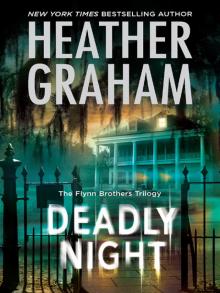 Deadly Night
Deadly Night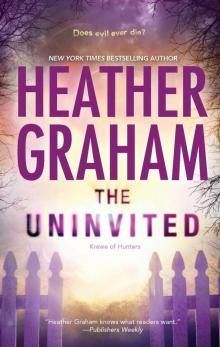 The Uninvited
The Uninvited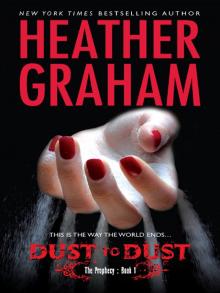 Dust to Dust
Dust to Dust Heart of Evil
Heart of Evil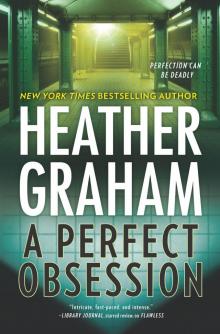 A Perfect Obsession
A Perfect Obsession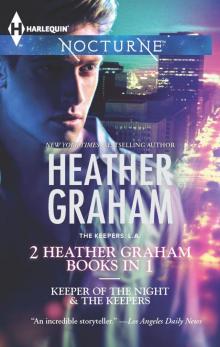 The Keepers
The Keepers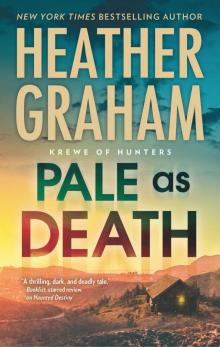 Pale as Death
Pale as Death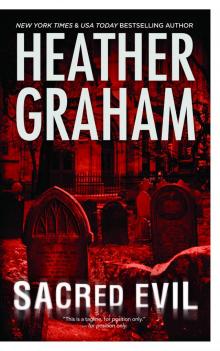 Phantom Evil
Phantom Evil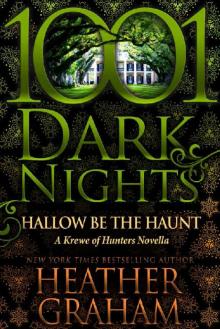 Hallow Be the Haunt
Hallow Be the Haunt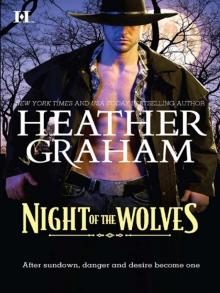 Night of the Wolves
Night of the Wolves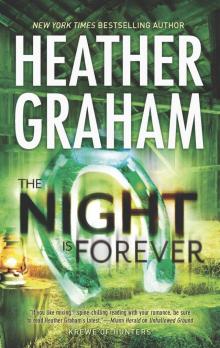 The Night Is Forever
The Night Is Forever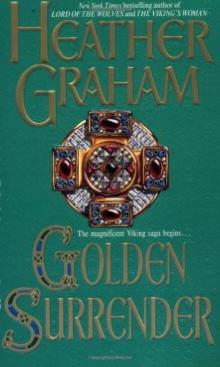 Golden Surrender
Golden Surrender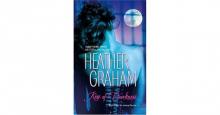 Kiss of Darkness
Kiss of Darkness Beneath a Blood Red Moon
Beneath a Blood Red Moon A Dangerous Game
A Dangerous Game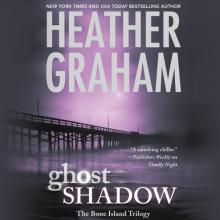 Ghost Shadow
Ghost Shadow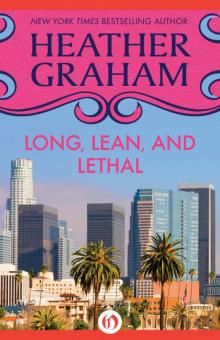 Long, Lean, and Lethal
Long, Lean, and Lethal Fade to Black
Fade to Black The Rising
The Rising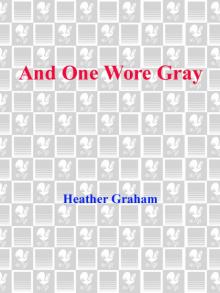 And One Wore Gray
And One Wore Gray Rebel
Rebel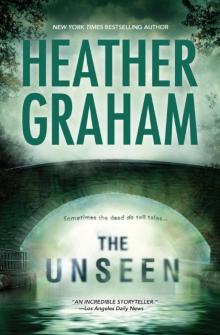 The Unseen
The Unseen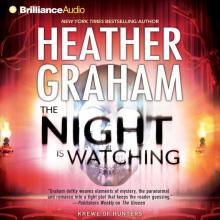 The Night Is Watching
The Night Is Watching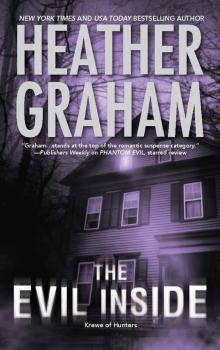 The Evil Inside
The Evil Inside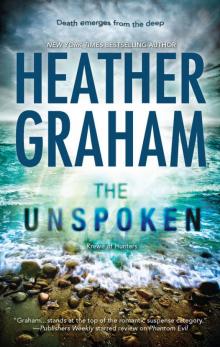 The Unspoken
The Unspoken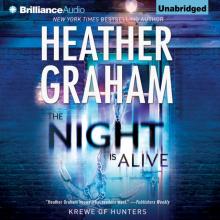 The Night Is Alive
The Night Is Alive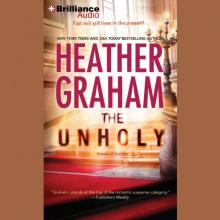 The Unholy
The Unholy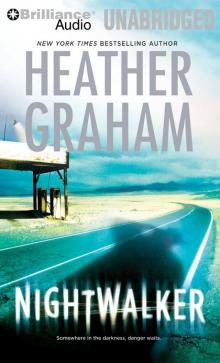 Nightwalker
Nightwalker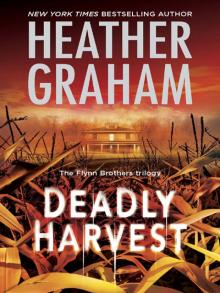 Deadly Harvest
Deadly Harvest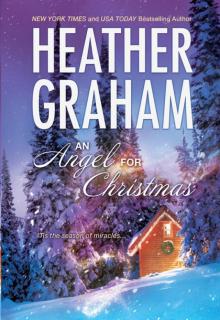 An Angel for Christmas
An Angel for Christmas A Pirate's Pleasure
A Pirate's Pleasure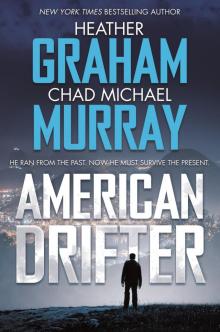 American Drifter
American Drifter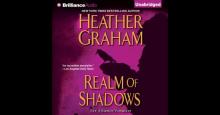 Realm of Shadows
Realm of Shadows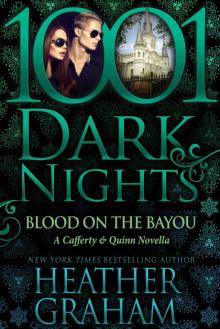 Blood on the Bayou
Blood on the Bayou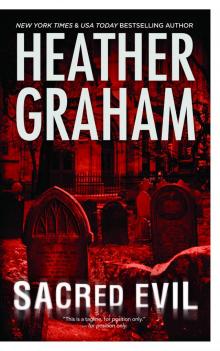 Sacred Evil
Sacred Evil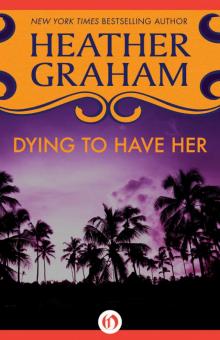 Dying to Have Her
Dying to Have Her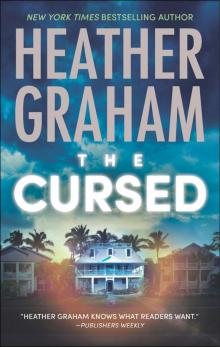 The Cursed
The Cursed Captive
Captive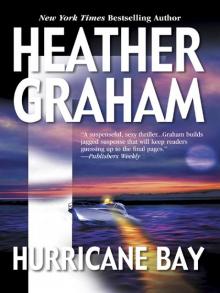 Hurricane Bay
Hurricane Bay Drop Dead Gorgeous
Drop Dead Gorgeous Ghost Memories
Ghost Memories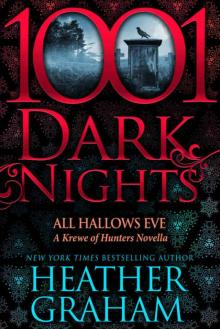 All Hallows Eve
All Hallows Eve Dying Breath
Dying Breath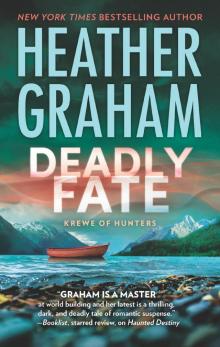 Deadly Fate
Deadly Fate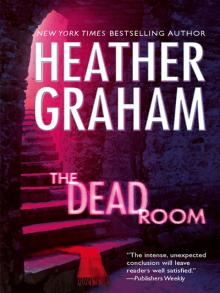 The Dead Room
The Dead Room Lord of the Wolves
Lord of the Wolves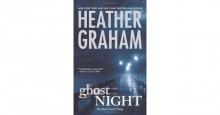 Ghost Night
Ghost Night Ghost Walk
Ghost Walk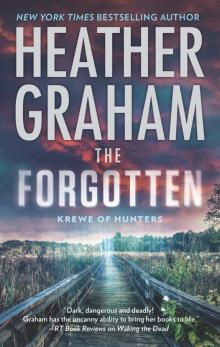 The Forgotten
The Forgotten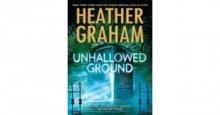 Unhallowed Ground
Unhallowed Ground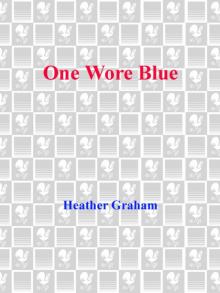 One Wore Blue
One Wore Blue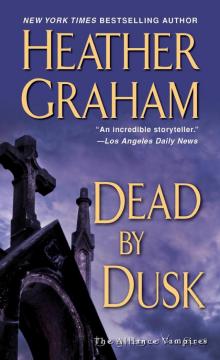 Dead By Dusk
Dead By Dusk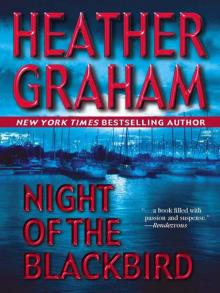 Night of the Blackbird
Night of the Blackbird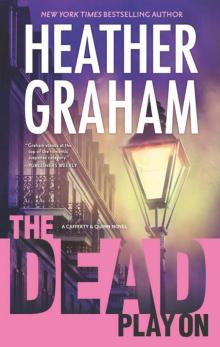 The Dead Play On
The Dead Play On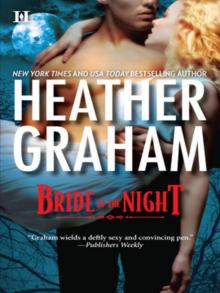 Bride of the Night
Bride of the Night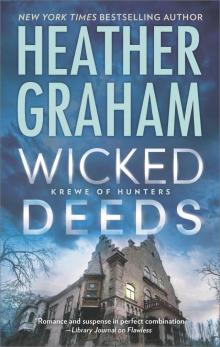 Wicked Deeds
Wicked Deeds The Forbidden
The Forbidden Triumph
Triumph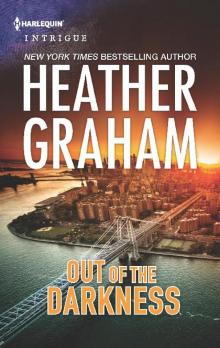 Out of the Darkness
Out of the Darkness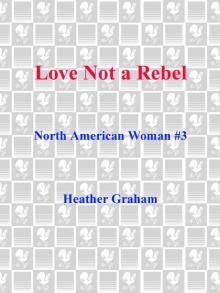 Love Not a Rebel
Love Not a Rebel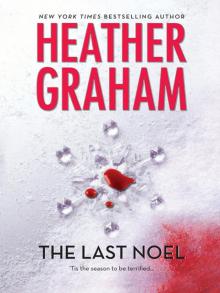 The Last Noel
The Last Noel Tall, Dark, and Deadly
Tall, Dark, and Deadly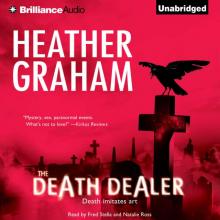 The Death Dealer
The Death Dealer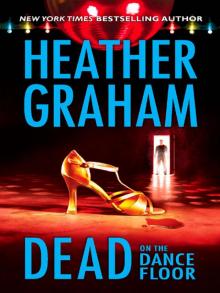 Dead on the Dance Floor
Dead on the Dance Floor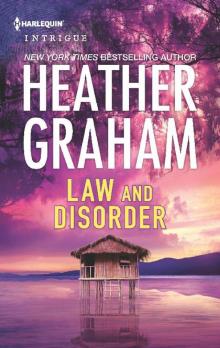 Law and Disorder
Law and Disorder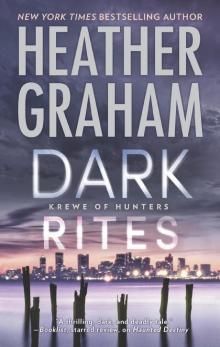 Dark Rites
Dark Rites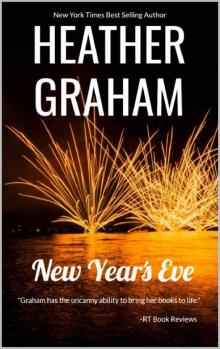 New Year's Eve
New Year's Eve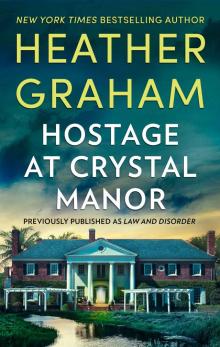 Hostage At Crystal Manor
Hostage At Crystal Manor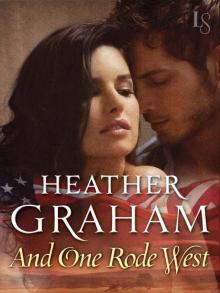 And One Rode West
And One Rode West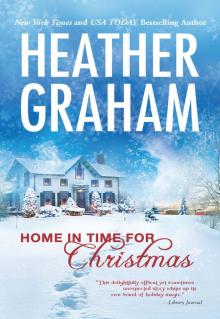 Home in Time for Christmas
Home in Time for Christmas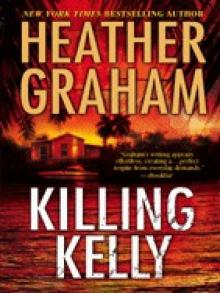 Killing Kelly
Killing Kelly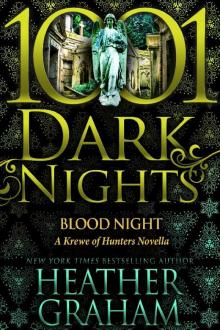 Blood Night
Blood Night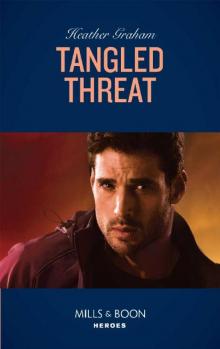 Tangled Threat (Mills & Boon Heroes)
Tangled Threat (Mills & Boon Heroes)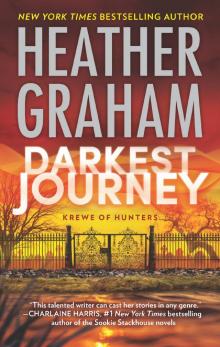 Darkest Journey
Darkest Journey Glory
Glory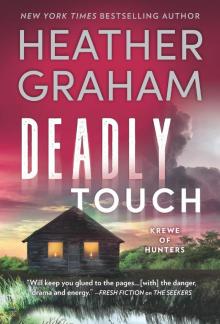 Deadly Touch
Deadly Touch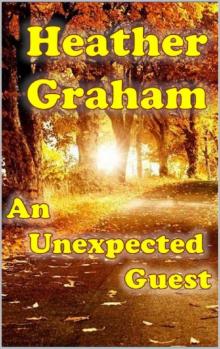 An Unexpected Guest
An Unexpected Guest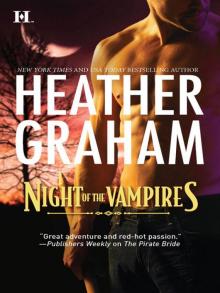 Night of the Vampires
Night of the Vampires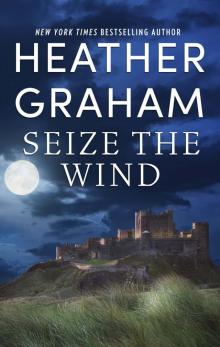 Seize the Wind
Seize the Wind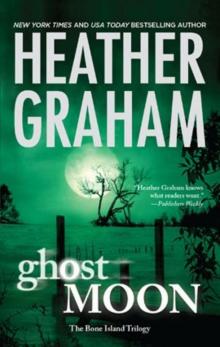 Ghost Moon
Ghost Moon The Vision
The Vision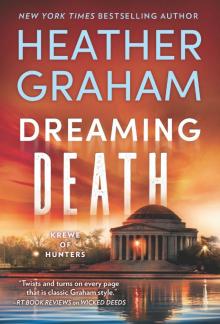 Dreaming Death
Dreaming Death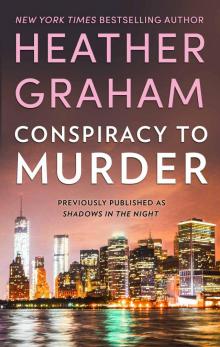 Conspiracy to Murder
Conspiracy to Murder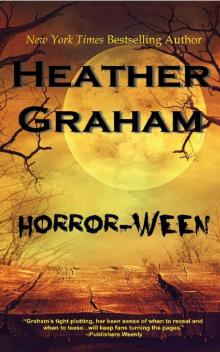 Horror-Ween (Krewe of Hunters)
Horror-Ween (Krewe of Hunters)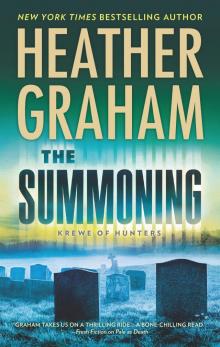 The Summoning
The Summoning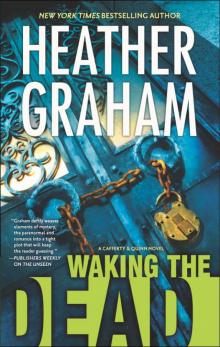 Waking the Dead
Waking the Dead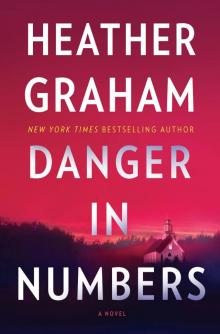 Danger in Numbers
Danger in Numbers The Hidden
The Hidden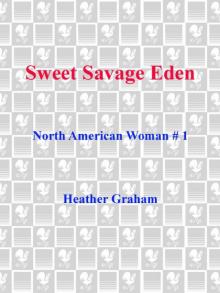 Sweet Savage Eden
Sweet Savage Eden Tangled Threat ; Suspicious
Tangled Threat ; Suspicious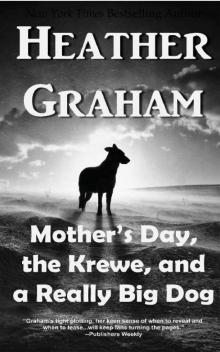 Mother's Day, the Krewe, and a Really Big Dog
Mother's Day, the Krewe, and a Really Big Dog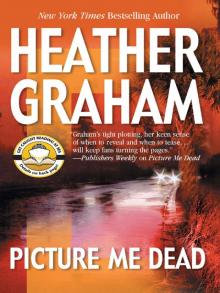 Picture Me Dead
Picture Me Dead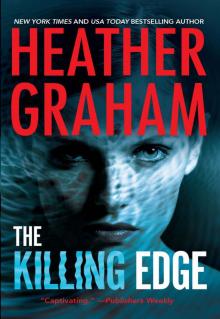 The Killing Edge
The Killing Edge St. Patrick's Day
St. Patrick's Day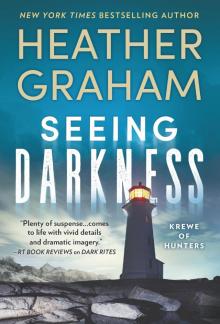 Seeing Darkness
Seeing Darkness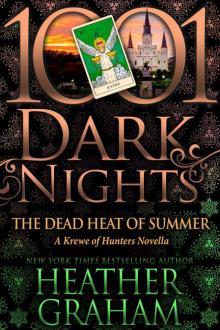 The Dead Heat of Summer: A Krewe of Hunters Novella
The Dead Heat of Summer: A Krewe of Hunters Novella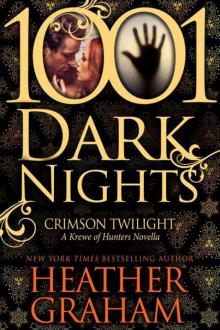 Crimson Twilight
Crimson Twilight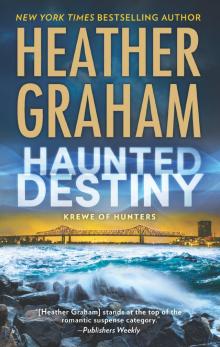 Haunted Destiny
Haunted Destiny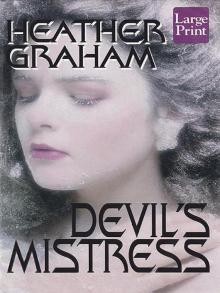 Devil's Mistress
Devil's Mistress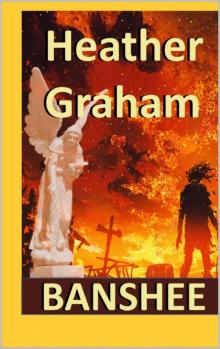 Banshee
Banshee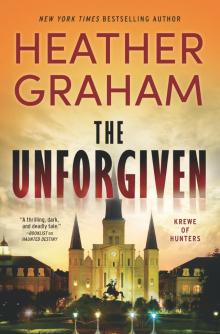 The Unforgiven
The Unforgiven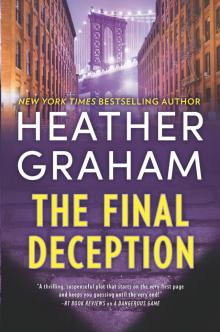 The Final Deception
The Final Deception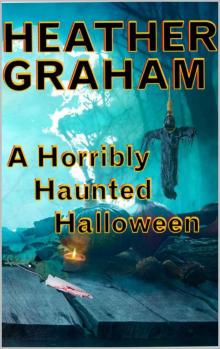 A Horribly Haunted Halloween
A Horribly Haunted Halloween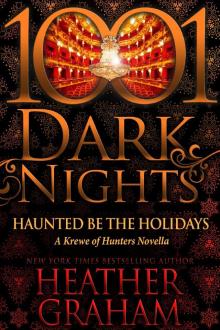 Haunted Be the Holidays
Haunted Be the Holidays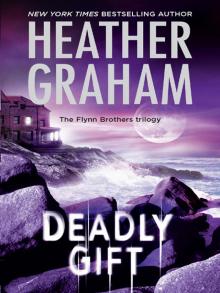 Deadly Gift
Deadly Gift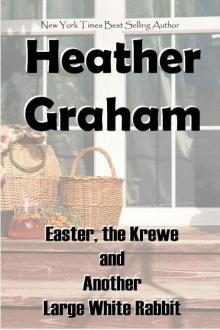 Easter, the Krewe and Another Large White Rabbit
Easter, the Krewe and Another Large White Rabbit Haunted
Haunted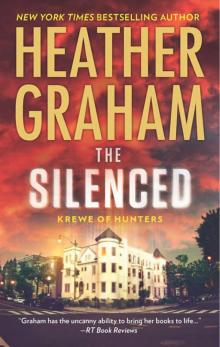 The Silenced
The Silenced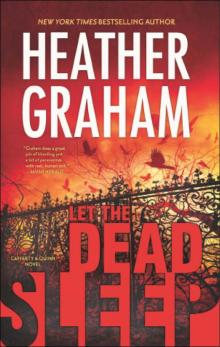 Let the Dead Sleep
Let the Dead Sleep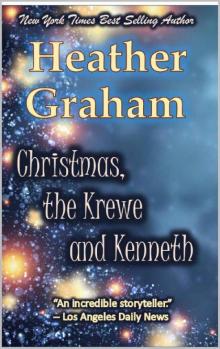 Christmas, the Krewe, and Kenneth
Christmas, the Krewe, and Kenneth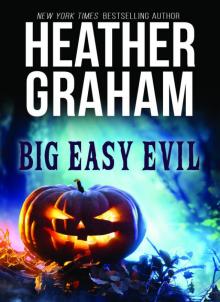 Big Easy Evil
Big Easy Evil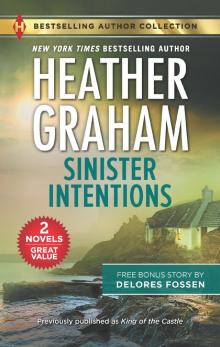 Sinister Intentions & Confiscated Conception
Sinister Intentions & Confiscated Conception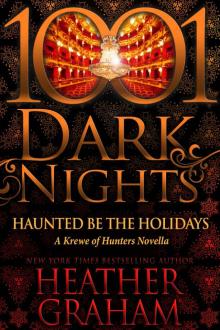 Haunted Be the Holidays: A Krewe of Hunters Novella
Haunted Be the Holidays: A Krewe of Hunters Novella Blood Red
Blood Red A Perilous Eden
A Perilous Eden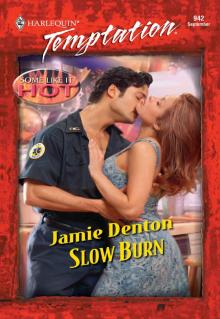 Slow Burn
Slow Burn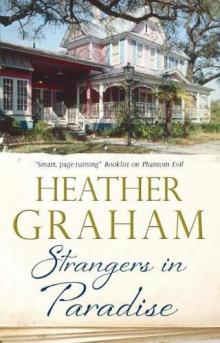 Strangers In Paradise
Strangers In Paradise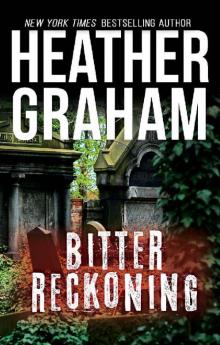 Bitter Reckoning
Bitter Reckoning Krewe of Hunters, Volume 1: Phantom Evil ; Heart of Evil ; Sacred Evil ; The Evil Inside
Krewe of Hunters, Volume 1: Phantom Evil ; Heart of Evil ; Sacred Evil ; The Evil Inside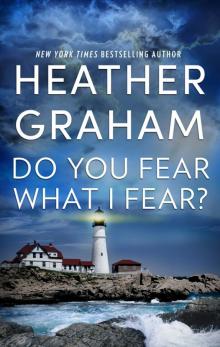 Do You Fear What I Fear?
Do You Fear What I Fear?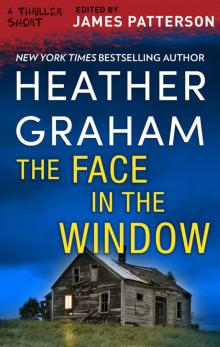 The Face in the Window
The Face in the Window Krewe of Hunters, Volume 3: The Night Is WatchingThe Night Is AliveThe Night Is Forever
Krewe of Hunters, Volume 3: The Night Is WatchingThe Night Is AliveThe Night Is Forever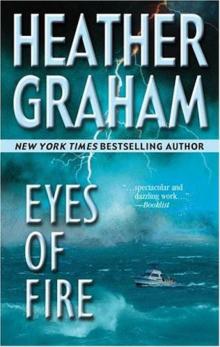 Eyes of Fire
Eyes of Fire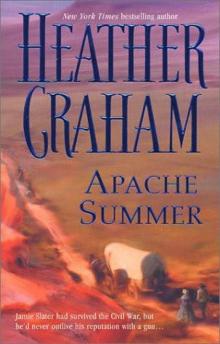 Apache Summer sb-3
Apache Summer sb-3 Sensuous Angel
Sensuous Angel In the Dark
In the Dark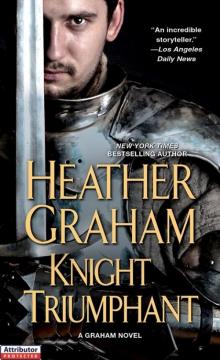 Knight Triumphant
Knight Triumphant Hours to Cherish
Hours to Cherish Tender Deception
Tender Deception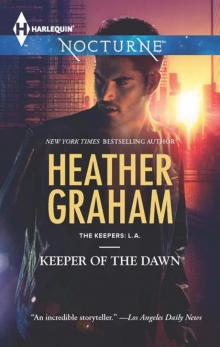 Keeper of the Dawn tkl-4
Keeper of the Dawn tkl-4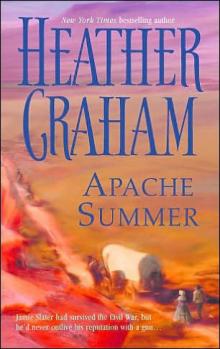 Apache Summer
Apache Summer Between Roc and a Hard Place
Between Roc and a Hard Place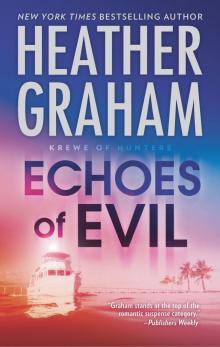 Echoes of Evil
Echoes of Evil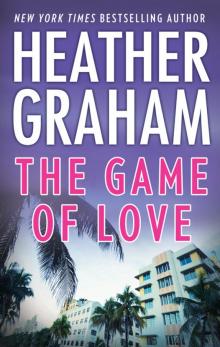 The Game of Love
The Game of Love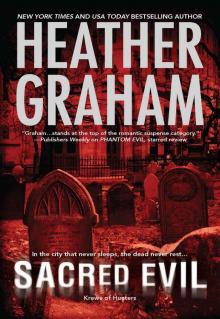 Sacred Evil (Krewe of Hunters)
Sacred Evil (Krewe of Hunters)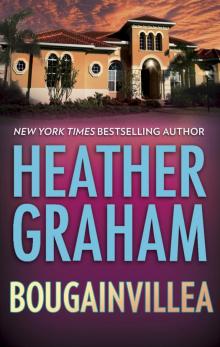 Bougainvillea
Bougainvillea Tender Taming
Tender Taming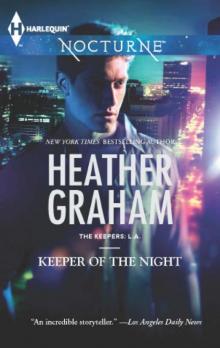 Keeper of the Night (The Keepers: L.A.)
Keeper of the Night (The Keepers: L.A.)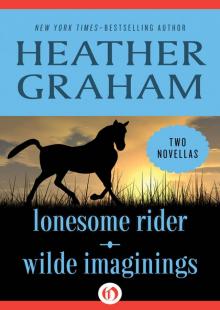 Lonesome Rider and Wilde Imaginings
Lonesome Rider and Wilde Imaginings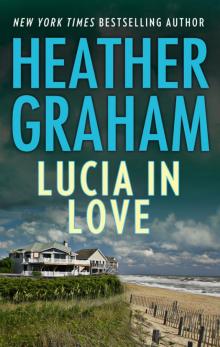 Lucia in Love
Lucia in Love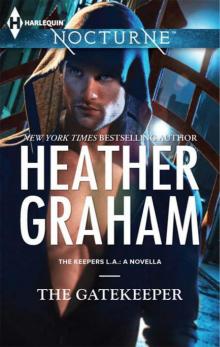 The Gatekeeper
The Gatekeeper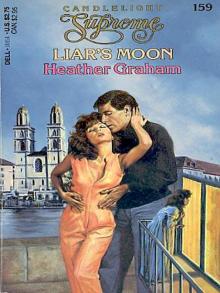 Liar's Moon
Liar's Moon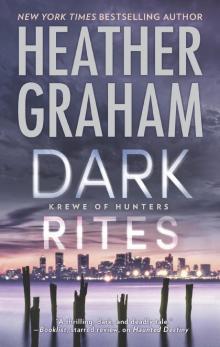 Dark Rites--A Paranormal Romance Novel
Dark Rites--A Paranormal Romance Novel A Season for Love
A Season for Love Krewe of Hunters, Volume 6: Haunted Destiny ; Deadly Fate ; Darkest Journey
Krewe of Hunters, Volume 6: Haunted Destiny ; Deadly Fate ; Darkest Journey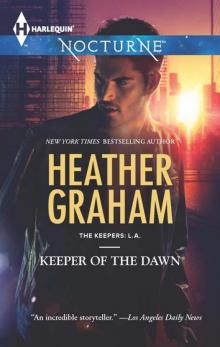 Keeper of the Dawn (The Keepers: L.A.)
Keeper of the Dawn (The Keepers: L.A.)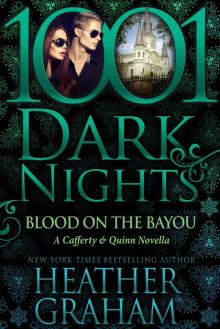 Blood on the Bayou: A Cafferty & Quinn Novella
Blood on the Bayou: A Cafferty & Quinn Novella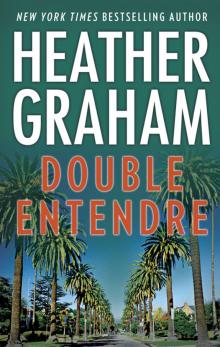 Double Entendre
Double Entendre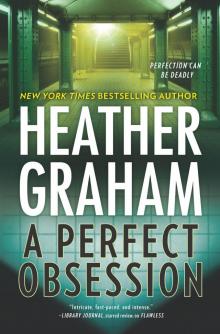 A Perfect Obsession--A Novel of Romantic Suspense
A Perfect Obsession--A Novel of Romantic Suspense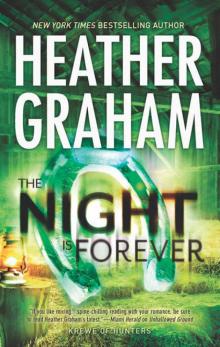 The Night Is Forever koh-11
The Night Is Forever koh-11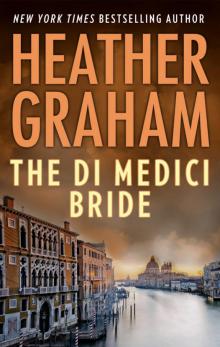 The Di Medici Bride
The Di Medici Bride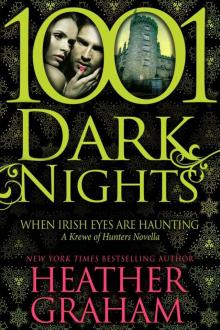 When Irish Eyes Are Haunting: A Krewe of Hunters Novella
When Irish Eyes Are Haunting: A Krewe of Hunters Novella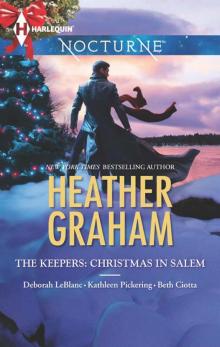 The Keepers: Christmas in Salem: Do You Fear What I Fear?The Fright Before ChristmasUnholy NightStalking in a Winter Wonderland (Harlequin Nocturne)
The Keepers: Christmas in Salem: Do You Fear What I Fear?The Fright Before ChristmasUnholy NightStalking in a Winter Wonderland (Harlequin Nocturne)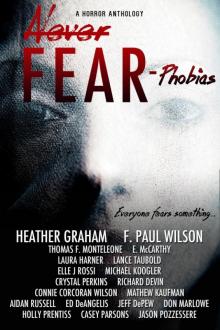 Never Fear
Never Fear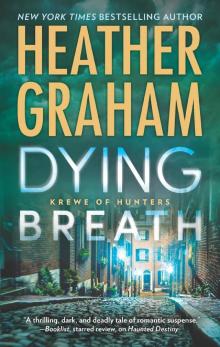 Dying Breath--A Heart-Stopping Novel of Paranormal Romantic Suspense
Dying Breath--A Heart-Stopping Novel of Paranormal Romantic Suspense If Looks Could Kill
If Looks Could Kill This Rough Magic
This Rough Magic Heather Graham's Christmas Treasures
Heather Graham's Christmas Treasures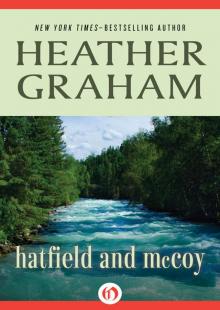 Hatfield and McCoy
Hatfield and McCoy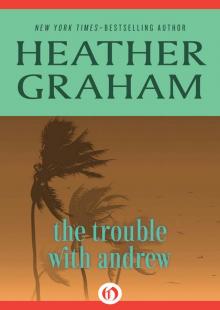 The Trouble with Andrew
The Trouble with Andrew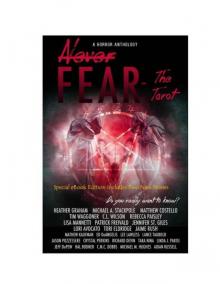 Never Fear - The Tarot: Do You Really Want To Know?
Never Fear - The Tarot: Do You Really Want To Know?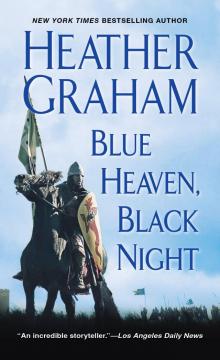 Blue Heaven, Black Night
Blue Heaven, Black Night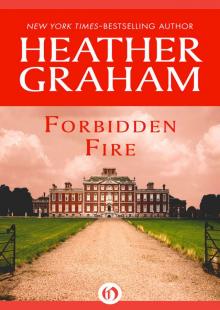 Forbidden Fire
Forbidden Fire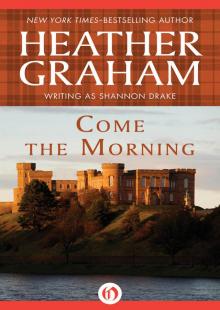 Come the Morning
Come the Morning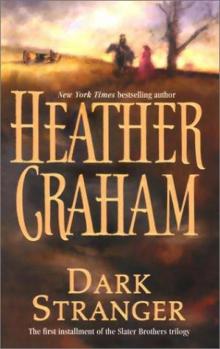 Dark Stranger sb-4
Dark Stranger sb-4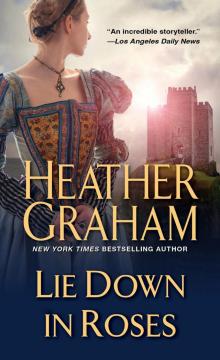 Lie Down in Roses
Lie Down in Roses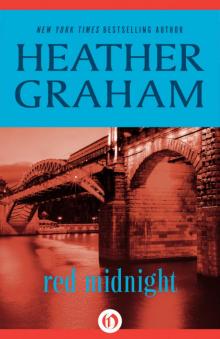 Red Midnight
Red Midnight Krewe of Hunters Series, Volume 5
Krewe of Hunters Series, Volume 5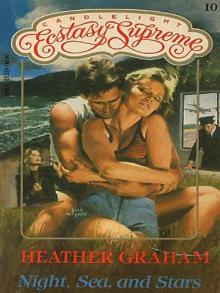 Night, Sea, And Stars
Night, Sea, And Stars Snowfire
Snowfire Quiet Walks the Tiger
Quiet Walks the Tiger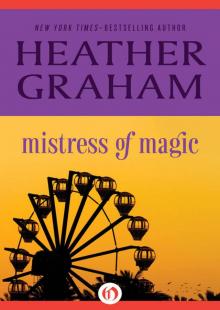 Mistress of Magic
Mistress of Magic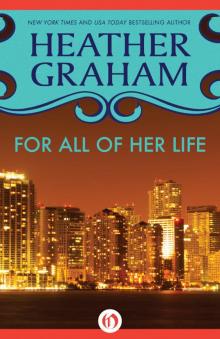 For All of Her Life
For All of Her Life Runaway
Runaway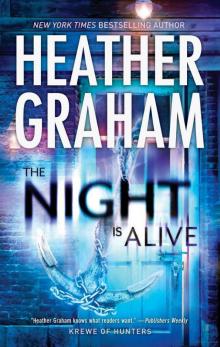 The Night Is Alive koh-10
The Night Is Alive koh-10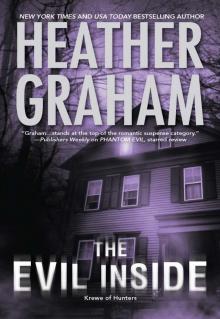 The Evil Inside (Krewe of Hunters)
The Evil Inside (Krewe of Hunters)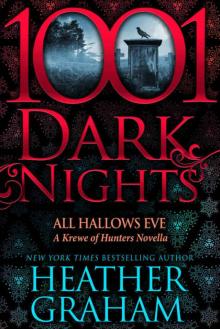 All Hallows Eve: A Krewe of Hunters Novella (1001 Dark Nights)
All Hallows Eve: A Krewe of Hunters Novella (1001 Dark Nights)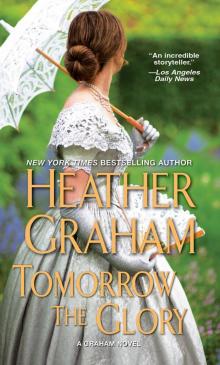 Tomorrow the Glory
Tomorrow the Glory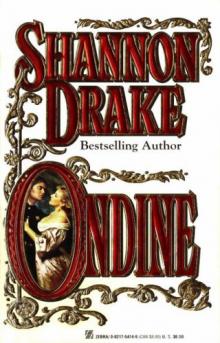 Ondine
Ondine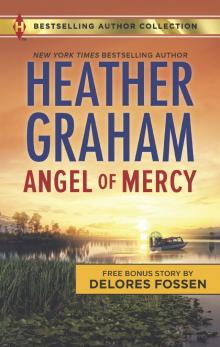 Angel of Mercy & Standoff at Mustang Ridge
Angel of Mercy & Standoff at Mustang Ridge Bride of the Tiger
Bride of the Tiger When Next We Love
When Next We Love Heather Graham Krewe of Hunters Series, Volume 4
Heather Graham Krewe of Hunters Series, Volume 4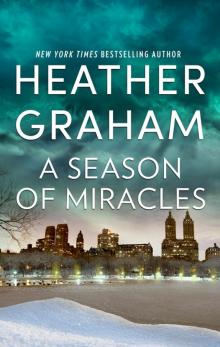 A Season of Miracles
A Season of Miracles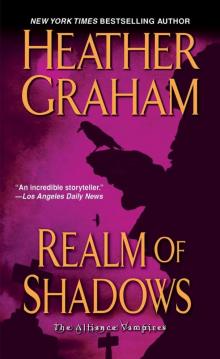 Realm of Shadows (Vampire Alliance)
Realm of Shadows (Vampire Alliance)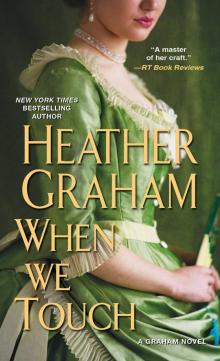 When We Touch
When We Touch Serena's Magic
Serena's Magic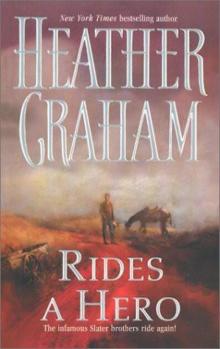 Rides a Hero sb-2
Rides a Hero sb-2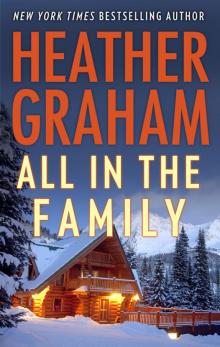 All in the Family
All in the Family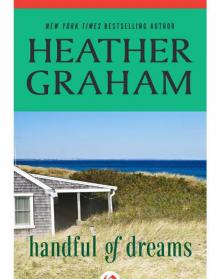 Handful of Dreams
Handful of Dreams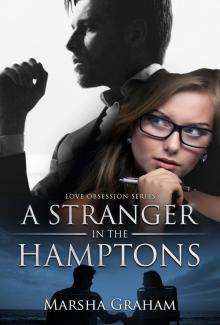 A Stranger in the Hamptons
A Stranger in the Hamptons Krewe of Hunters, Volume 2: The Unseen ; The Unholy ; The Unspoken ; The Uninvited
Krewe of Hunters, Volume 2: The Unseen ; The Unholy ; The Unspoken ; The Uninvited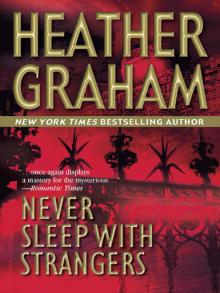 Never Sleep With Strangers
Never Sleep With Strangers Eden's Spell
Eden's Spell A Magical Christmas
A Magical Christmas Forever My Love
Forever My Love King of the Castle
King of the Castle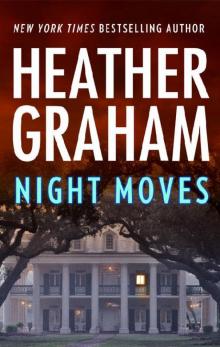 Night Moves (60th Anniversary)
Night Moves (60th Anniversary) The Island
The Island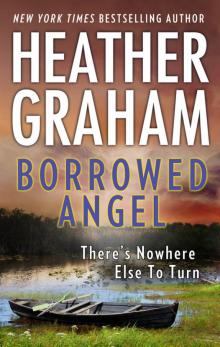 Borrowed Angel
Borrowed Angel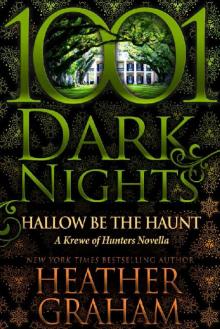 Hallow Be the Haunt: A Krewe of Hunters Novella
Hallow Be the Haunt: A Krewe of Hunters Novella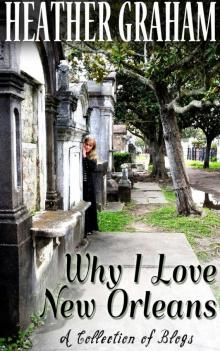 Why I Love New Orleans
Why I Love New Orleans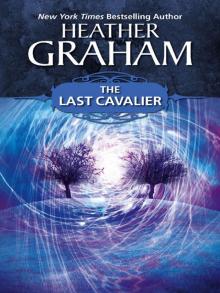 The Last Cavalier
The Last Cavalier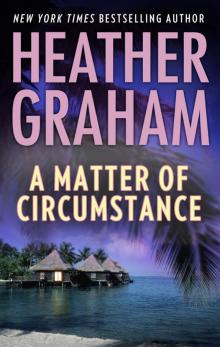 A Matter of Circumstance
A Matter of Circumstance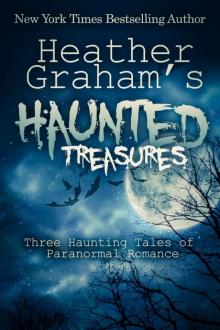 Heather Graham's Haunted Treasures
Heather Graham's Haunted Treasures Tempestuous Eden
Tempestuous Eden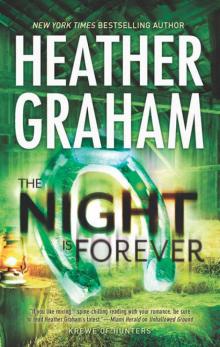 Krewe 11 - The Night Is Forever
Krewe 11 - The Night Is Forever